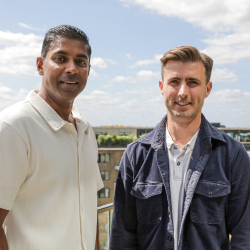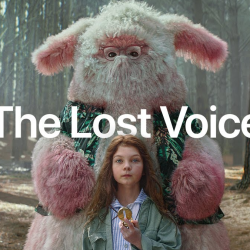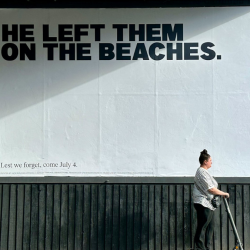As Tears for Fears (God, I’m showing my age now…) once sang: ‘Everybody wants to rule the world’. This has certainly been true of marketers over the last few years, with companies making ever grander claims for the social impact of their brands. But recently, there’s been a backlash against organisations who claim to be making a difference but turn out to be protecting the status quo. Quite rightly, there are now greater demands to walk the walk, not just talk the talk. For tangible results, not empty promises. For actions not words.
All of this is undoubtedly a good thing. But in our rush to do something, let’s not forget one of the most powerful actions there is. One that is often mistaken for inertia but is anything but: listening.
When we are very young, we are often told to listen. In fact that’s one of our main ways of learning and we become incredibly skilful at picking up moods and unspoken signals, as well as concrete information.
But as we learn to speak, this new trick becomes much more exciting! By the time we reach high school, we know that it pays to be noisy (even if that means shouting over everybody else). And by the time we leave, we’re clear that adulthood is all about self-expression: we’re encouraged to ‘find our voice’ and ‘make ourselves heard’, to get ahead.
Now obviously, this is all good up to a point. Being able to articulate an opinion or argument is a crucial life skill. But our views are invariably more robust when they’ve been informed by proper research, empathy and understanding. We need to remember that communication is a two-way street, not just a one-way broadcast — so taking breath to get an alternative perspective rarely hurts.
In my experience, many of the big breakthroughs in business come from great listening.
That might be a CEO hearing a throwaway comment on the factory floor and grasping its significance. It could be a marketer spotting an unexpected opportunity in another field. Or it could be a researcher understanding the silence in a focus group. Of course, the trick is then to turn these observations into tangible initiatives – but the point is that the action is more likely to make a difference when it’s based on insight.
Likewise, many of our biggest commercial failures stem from poor listening skills. Partnerships (in business as in life) typically fall apart when one side takes the other for granted. Bosses become complacent. Companies fail to read the room. Even populist politicians can fall from grace spectacularly, when they don’t hear that the mood music has changed.
So while we rightly prioritise action this year, let’s not skip over this important stage. Good intentions can backfire if we don’t listen to the people we’re supposedly trying to help. Bad ideas can be averted and great ones made even better. This doesn’t have to slow things down — in fact, building these firm foundations can actually save you time in the long run. In short, if you really want to change the world, listening can make the difference.
Featured image: Tears for Fears / YouTube and Universal Music Group
































